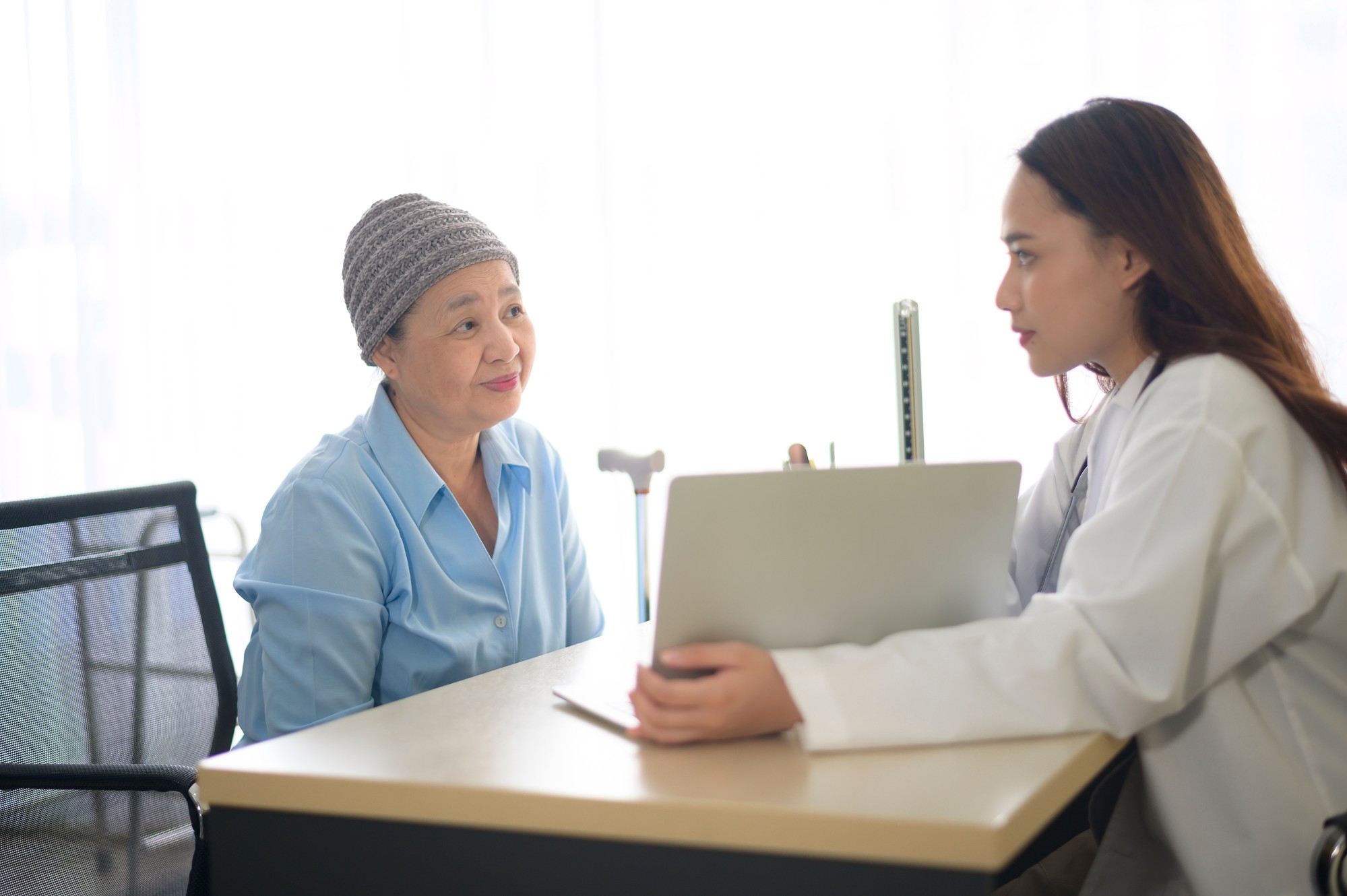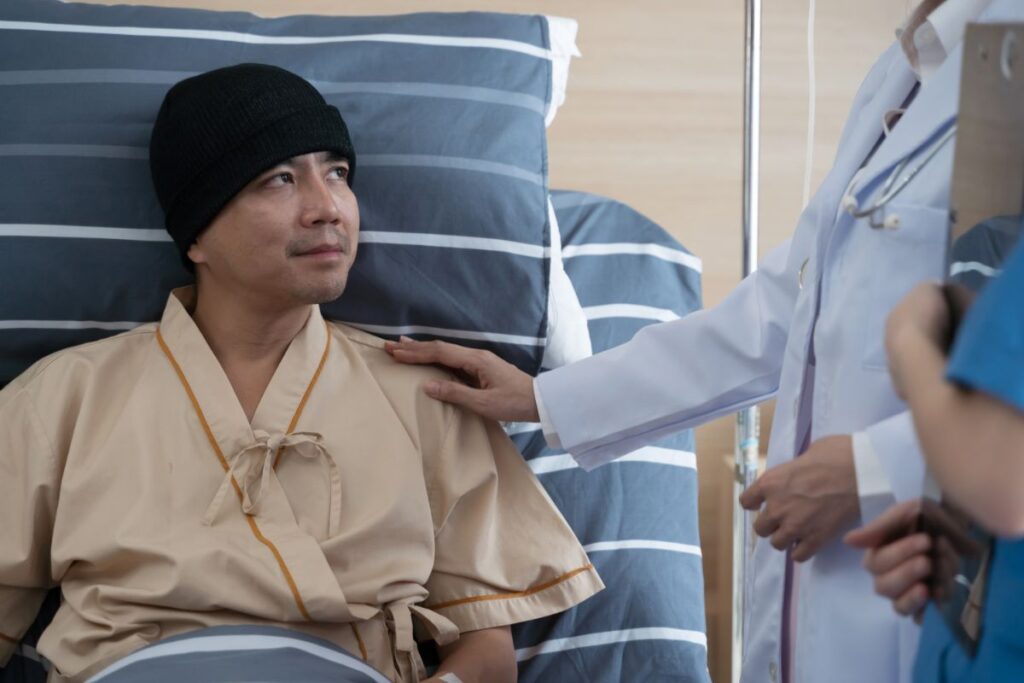What can you expect when having chemotherapy?
- Before the chemotherapy
- During the chemotherapy
- After the chemotherapy
It is normal to feel overwhelmed or worried when you are diagnosed with cancer and find out you need to undergo chemotherapy. However, understanding what to expect with chemotherapy can help you feel less anxious about undergoing the treatment.
What Is Chemotherapy?
Chemotherapy is a type of cancer treatment. It uses one or more drugs to prevent cancer cells from growing, dividing, and spreading. Patients undergo chemotherapy as part of overall cancer treatment. This means if you need to undergo chemotherapy, you might also need radiation therapy or surgery.
Chemotherapy may also be given to prolong a patient’s life, reduce cancer symptoms (e.g. pain or pressure), keep cancer from spreading to other body parts, or with curative intent.
Before The Chemotherapy

Each chemotherapy treatment is created according to a patient’s unique medical needs. Before the chemotherapy, you can expect to meet with an oncologist.
The oncologist will check your medical records and do various tests such as blood tests, X-rays, heart monitoring tests, and liver exams. Keep in mind that the exact chemotherapy treatment will depend on the size, type, and location of your cancer.
After meeting with the oncologist, your healthcare team will explain your treatment schedule. Your healthcare team will typically be composed of the oncologist, oncology nurses, pharmacist, dietitian, dentist, and others. Most chemotherapy treatments are given in cycles and the length of these cycles will depend on:
- The type of cancer you have
- The stage of the cancer
- The aim of the treatment
- The type of chemotherapy and the drugs that will be used
- The way the body responds to the treatment
- Then, you will need to give consent for the chemotherapy treatment to be done.
- Chemotherapy is an invasive treatment that can result in serious side effects during and
- after the treatment. This is because the drugs used cannot differentiate between health and
- cancer cells. As a result, the drugs can target both.
This is the best time to ask your healthcare team about any concerns. Once you decide to sign the consent form, it means that you give permission for the treatment to be given and that you understand the risks that come with it.
After signing the consent form, your healthcare team will also let you know about the food and medication restrictions while receiving chemotherapy. It’s important to tell them if you take any prescription drugs or vitamins and other supplements. This is to avoid unwanted drug interactions.
As the patient, you will need to prepare for the side effects of the chemotherapy. These can include:
- Nausea and vomiting
- Diarrhea
- Hair loss
- Loss of appetite
- Fatigue
- Anemia
- Bowel problems
- Infertility
- Heart problems
- Pain
- Constipation
- Easy bruising
- Bleeding
In adition, you should make arrangements at work since the treatment can affect your schedule.
During The Chemotherapy
Chemotherapy drugs are typically administered intravenously, which means the drugs are given through a needle into the vein. However, some chemotherapy drugs can also be given orally (as a pill, capsule, or liquid), topically (as a cream directly applied to the skin), through a catheter or port, or as an injection.
During your chemotherapy, you might want to have someone with you for support. In many cases, chemotherapy can make you feel tired and you might need someone to drive you home as well.
You may receive chemotherapy treatment at the doctor’s office, at the hospital, or at an infusion center.
- Before the chemotherapy starts, you will:
- Have your blood sample taken
- Have your blood pressure, temperature, height, weight, pulse, and breathing checked
- Meet with the healthcare team for the chemotherapy treatment
- Have the chemotherapy drugs given through an IV, port, or catheter
After The Chemotherapy
After the chemotherapy treatment session, the healthcare team member will take out the IV, port, or catheter until you finish all the drugs. Then, you can expect to be told about the potential side effects and how to manage them. Some of the tips you might be given include:
Avoiding other people with infections because chemotherapy weakens the body’s immune system
Drinking lots of fluids to help the chemotherapy drugs move throughout the body
Key Takeaway
Recently found out that you need chemotherapy? Understanding what to expect with chemotherapy can help reduce your anxiety, as a patient. To get the full benefit of the treatment, it is important to follow your healthcare team’s recommended schedule and other instructions.
For someone who has been diagnosed with cancer, a little compassion and understanding will go a long way. At Perpetual Help Medical Center-Las Pinas, our chemotherapy team is made up of the most competent, well-trained and most compassionate team of oncologists and oncologic nurses making sure that our cancer patients receive the care that they truly deserve.

